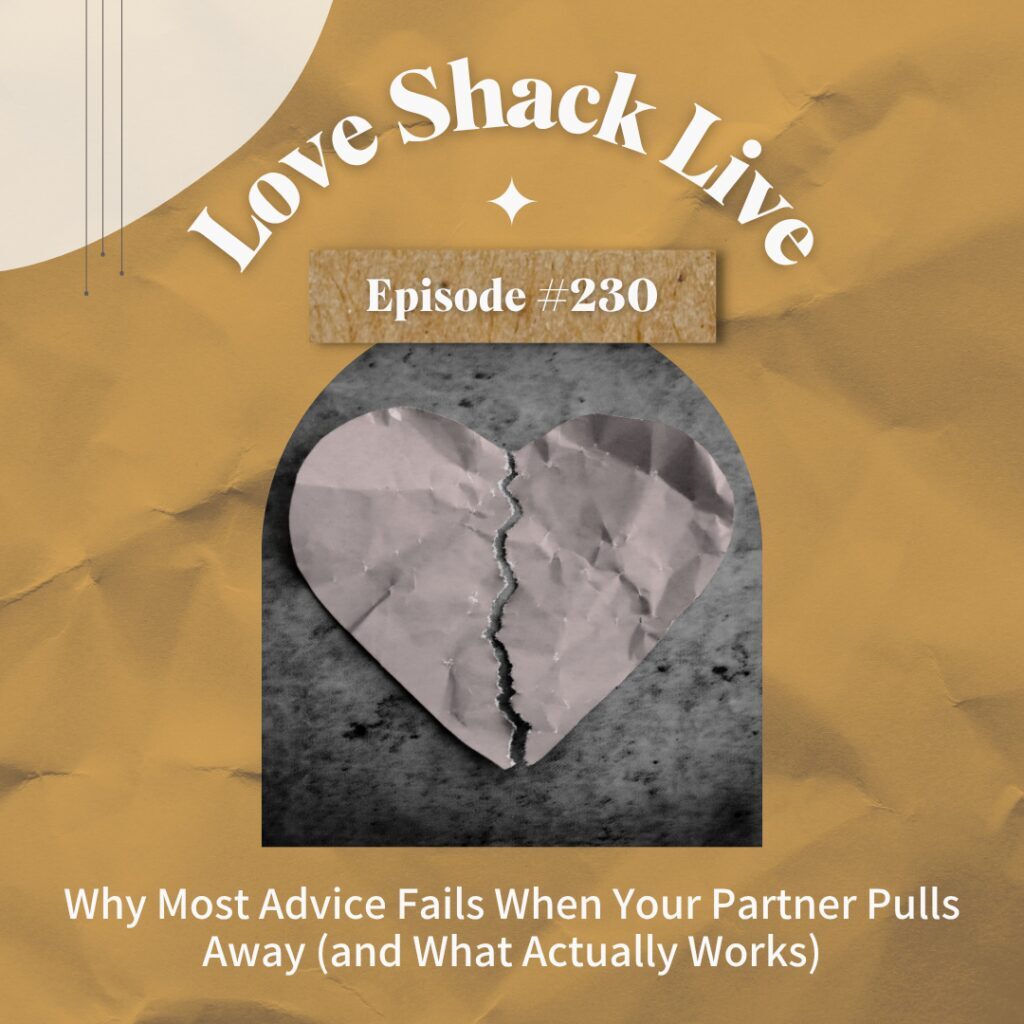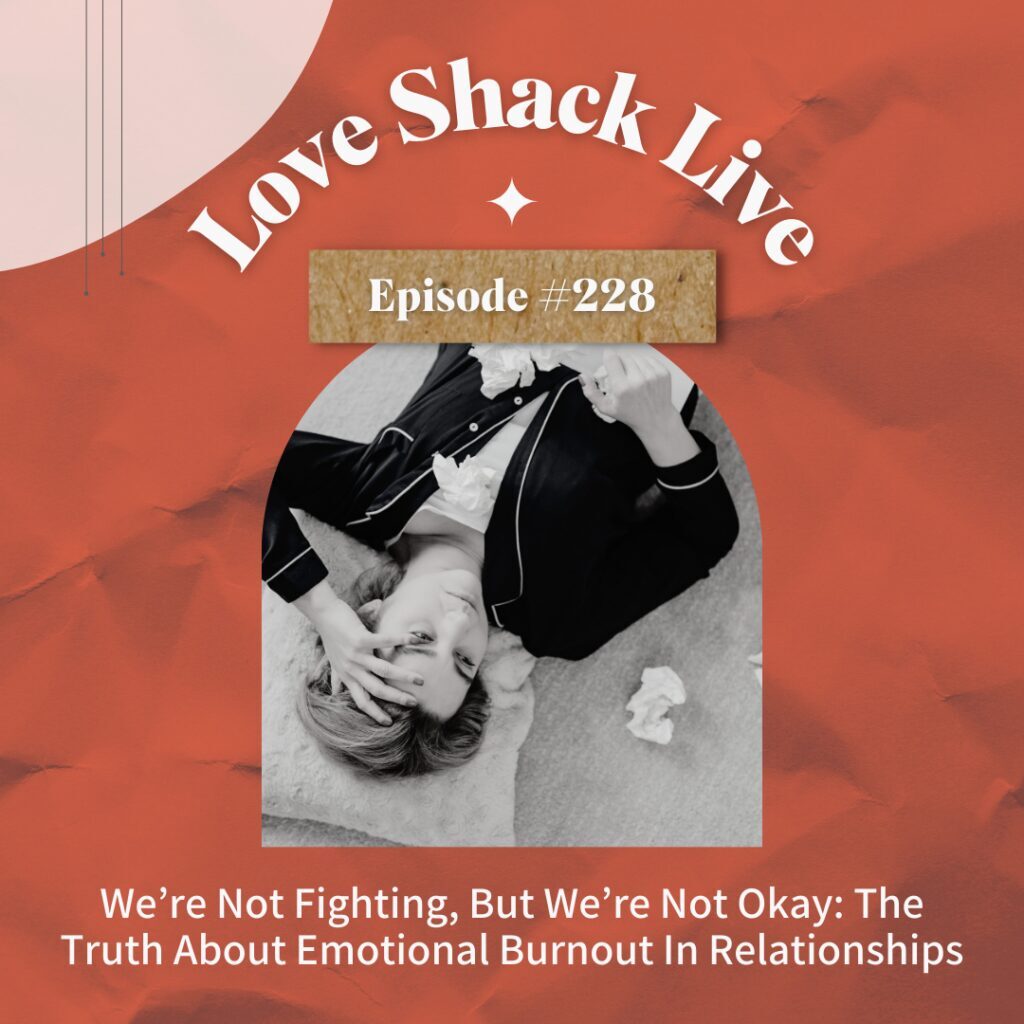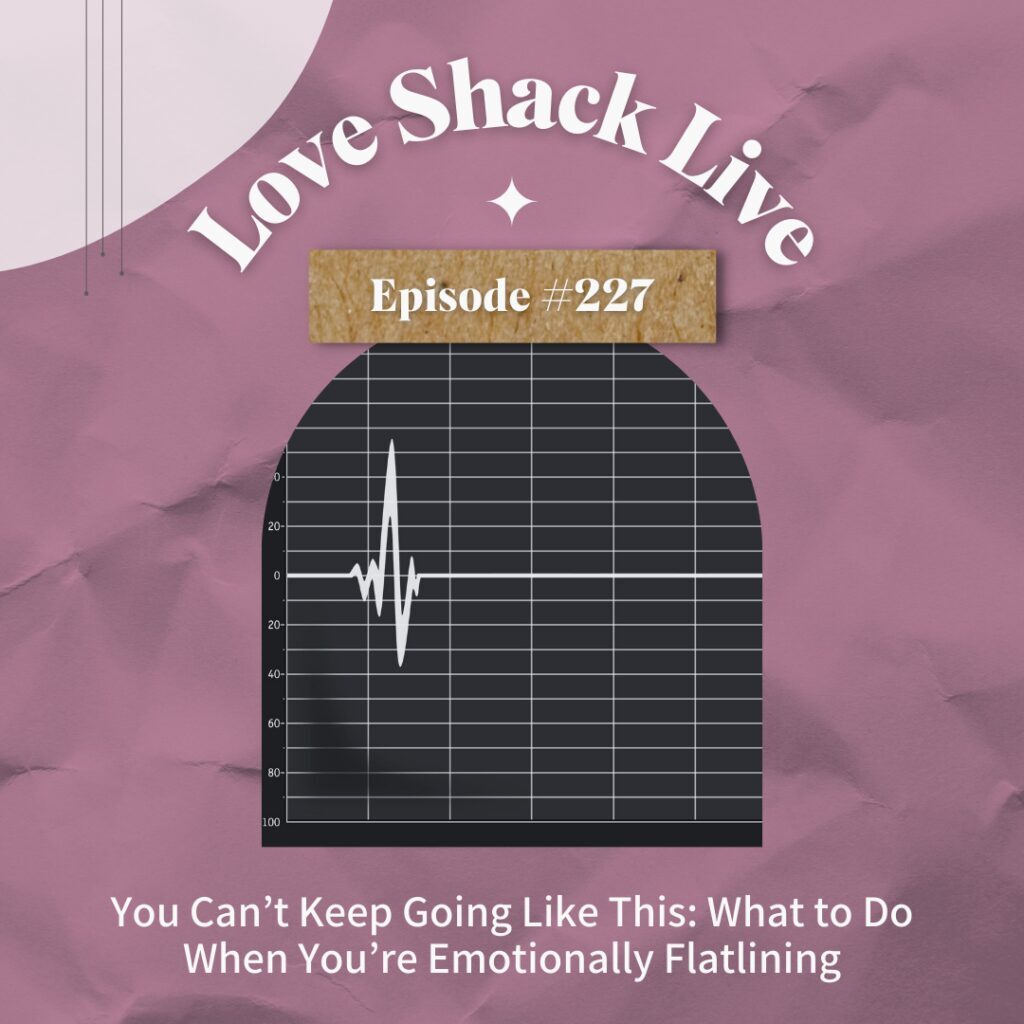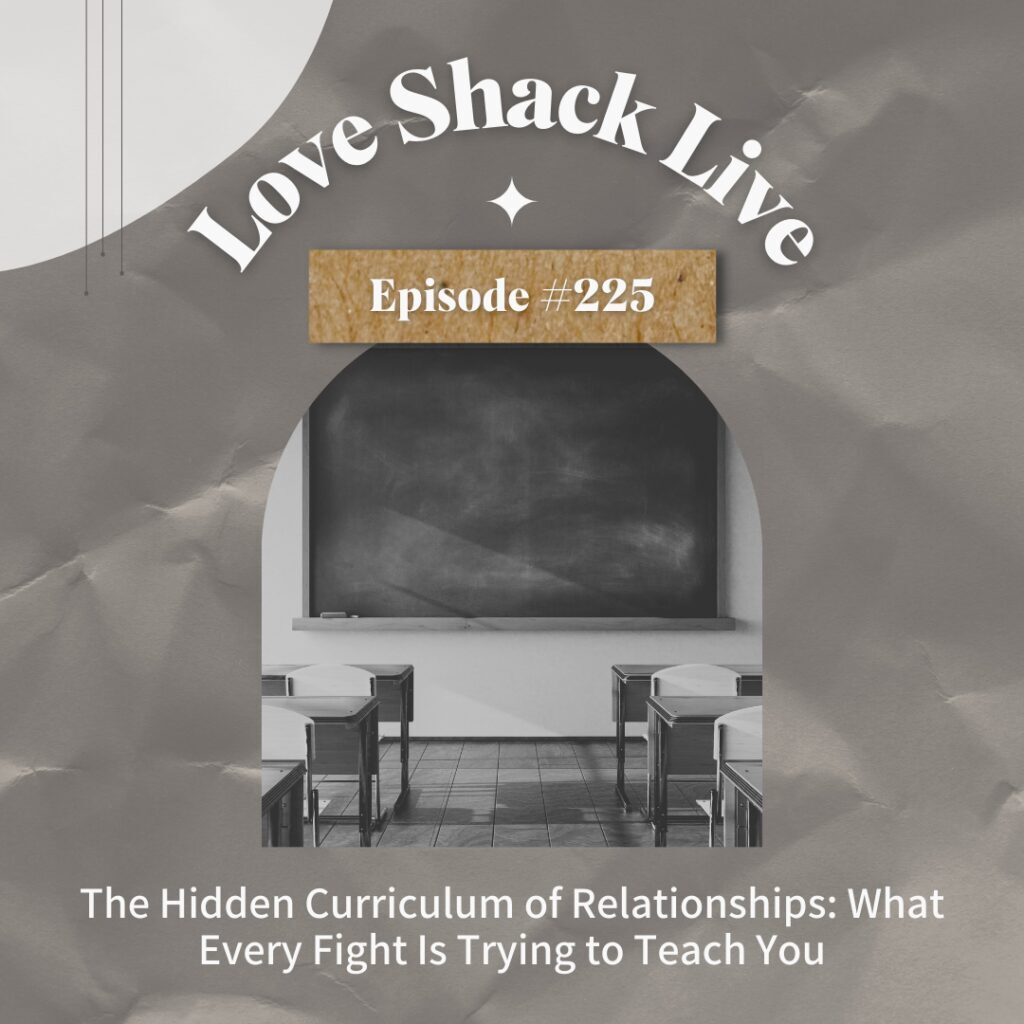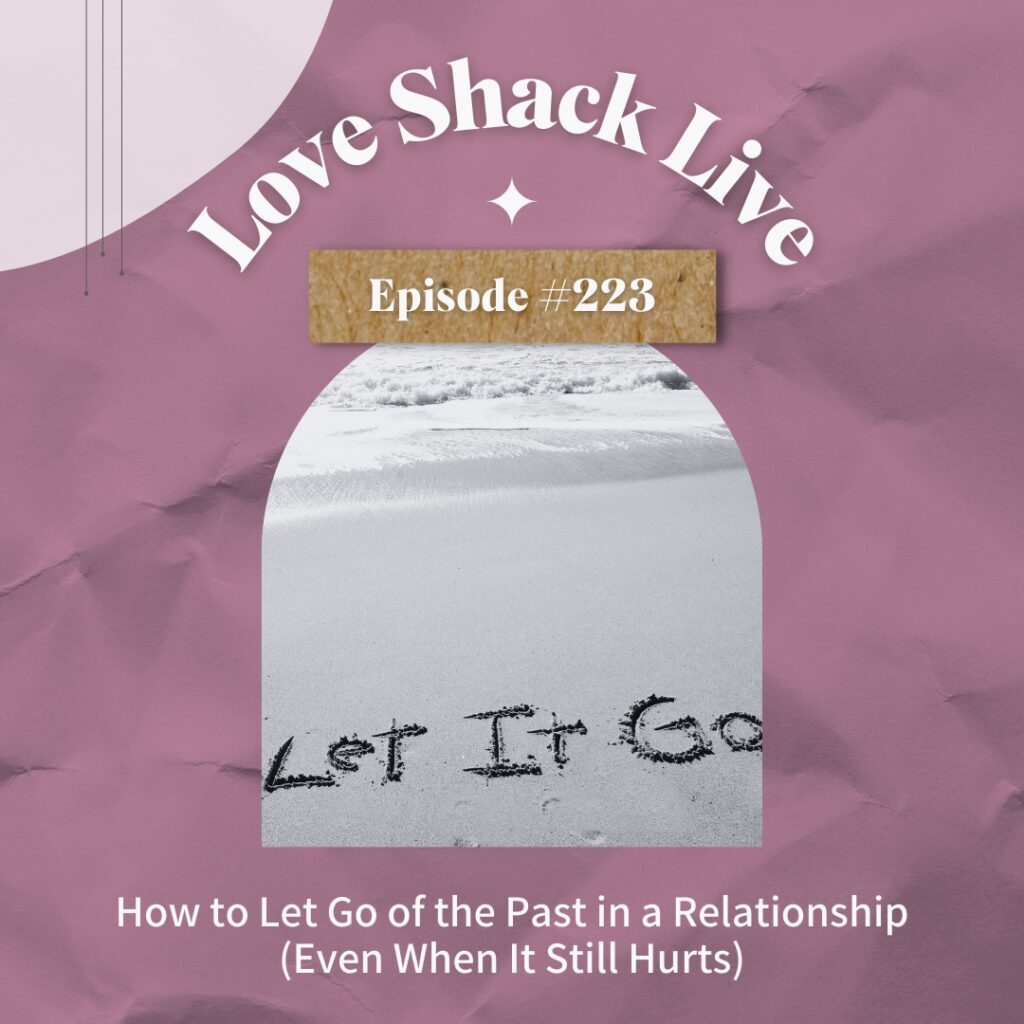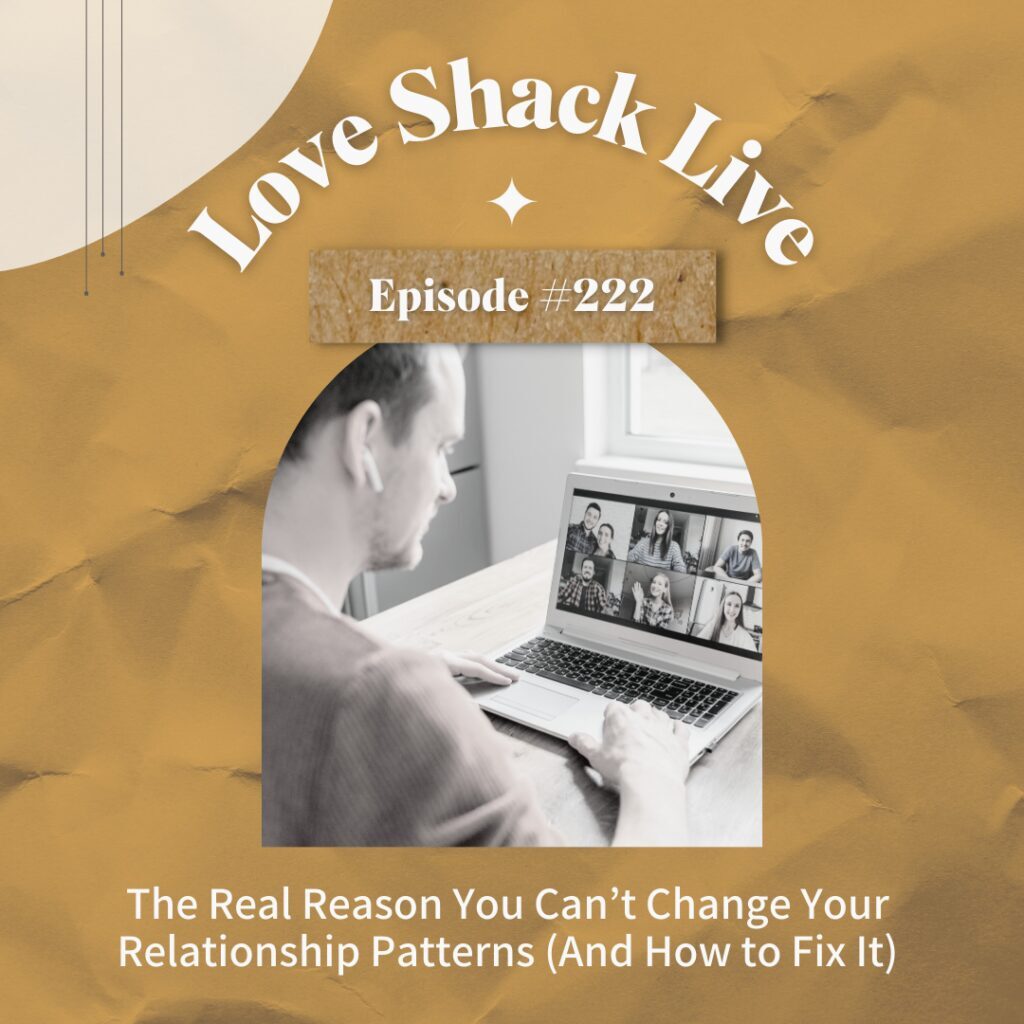#215: The #1 Mistake People Make When Their Partner Asks for Space

“The way you handle space isn’t just about getting through the next few weeks, it’s shaping what happens next.”
When your partner asks for space, it can feel like the ground beneath you is crumbling. Anxiety spikes. Thoughts spiral. Your mind starts racing through every conversation, every argument, every moment that could have led to this.
But what if the problem isn’t the space itself, but how you respond to it?
Most people panic. They either cling too tightly or shut down completely. They assume space means the relationship is doomed. In reality, space can be an opportunity, if you know how to navigate it.
This guide will walk you through exactly how to turn this uncertain period into a time of personal growth and emotional resilience.
Why Space Feels Like a Threat—And Why It’s Not
When someone we love asks for distance, it triggers one of our deepest fears: rejection. Our brains perceive it as a threat, something to be fixed immediately. But here’s the truth, space isn’t a sign that love has disappeared. It’s often a sign that something needs attention.
People don’t ask for space when they feel emotionally full. They ask for it when they’re overwhelmed, disconnected, or emotionally drained. It’s not about punishment; it’s about survival. Just like a car running on empty, a person who asks for space is signaling that they’re out of emotional fuel.
Trying to close that gap prematurely, through pleading, over-explaining, or pushing for reassurance, can actually drive them further away. Instead, the real work lies in shifting from fear to self-focus.
The Mistake That Pushes Your Partner Further Away
The biggest mistake people make? They make the space about their partner instead of about themselves.
They obsess over what their partner is thinking. They overanalyze every text. They try to control the outcome instead of using this time to reflect on their own emotional patterns.
But here’s the secret: the way you handle this space doesn’t just impact how you feel, it influences what happens next in your relationship.
If you spiral into panic, over-text, or push for immediate answers, you confirm your partner’s need for space. If you take this time to ground yourself, regain emotional balance, and shift your focus inward, you create the possibility of reconnection.
The Separation Survival Kit
Feeling lost after your partner asked for space? The Separation Survival Kit has everything you need to regain your footing. Packed with practical tips and guided exercises, it’s designed to help you navigate the uncertainty and make empowered decisions—without the spiral of overthinking.
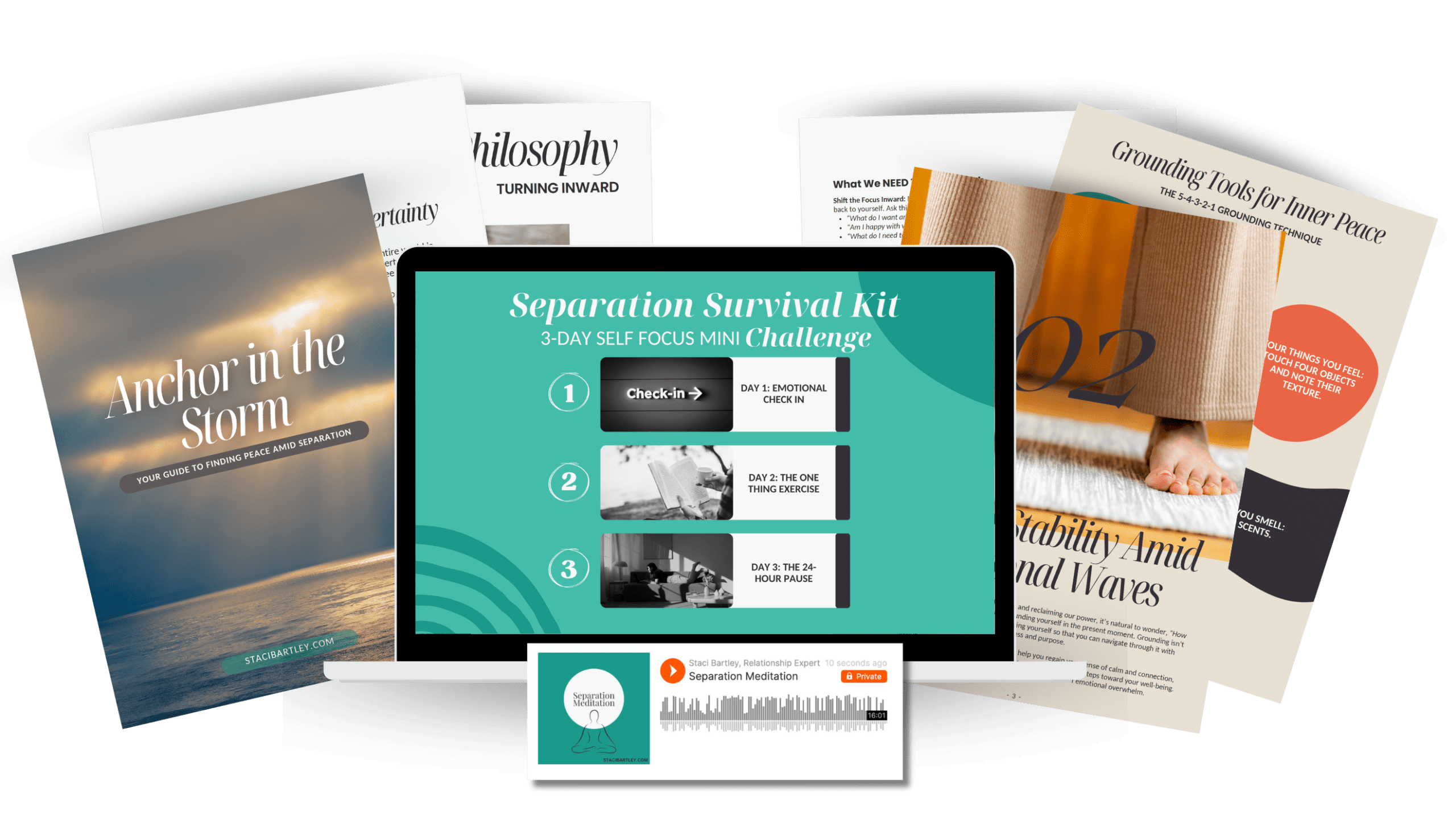
How to Use This Time for Growth Instead of Anxiety
So what should you do instead of panicking? You turn inward. This isn’t about fixing the relationship overnight, it’s about building emotional skills that will serve you no matter what happens next.
Here’s how:
1. Shift from Reaction to Response
When emotions run high, most of us react impulsively. We try to fix, persuade, or chase. But relationships don’t heal through emotional reactivity. They heal through emotional regulation.
Practice the pause, when you feel the urge to reach out, ask yourself:
- Am I acting from fear or clarity?
- Will this action bring me closer to calm, or escalate my anxiety?
By learning to regulate your emotions instead of letting them control you, you show your partner (and yourself) that you’re capable of handling this moment with strength.
2. Embrace Emotional Weightlifting
Think of emotional regulation like strength training. The more you practice, the stronger you become. Every time you resist the urge to react impulsively, you build the muscle of self-control.
This doesn’t mean suppressing emotions, it means learning to hold space for them without letting them dictate your actions.
Try this:
- Name the emotion (“I’m feeling rejected and scared”).
- Acknowledge the story you’re telling yourself (“My mind is saying this means we’re breaking up, but I don’t actually know that”).
- Redirect your focus to self-care and self-soothing strategies.
3. See Space as a Reset, Not a Rejection
Instead of seeing space as abandonment, reframe it. This is a time for both of you to reset, to gain clarity, and to return to the relationship with fresh perspective.
What if instead of fearing space, you used it to:
- Reconnect with things that bring you joy (outside of the relationship).
- Reflect on your role in the relationship dynamic.
- Build the emotional resilience that will serve you in love and life.
Remember: The way you show up during this time isn’t just for your partner, it’s for you.
The Roadmap to Navigating Space with Strength
- Own It, Don’t Blame It: This space isn’t a punishment. It’s an opportunity. Avoid blaming your partner or viewing yourself as a victim. Instead, focus on what you can control—your own growth.
- Change and the Power of Contrast: Space creates contrast. It allows both people to see what’s working, what’s not, and what truly matters. Instead of fighting it, lean into the insight it provides.
- Create Boundaries That Support Growth: If communication is still happening, make sure it’s intentional. Agree on how often you’ll check in, what’s off-limits, and what this space is actually for.
- Stop Trying to “Fix” and Start Trying to Understand: Shift from “How do I get them back?” to “What is this experience teaching me?” True growth comes from asking better questions.
Final Thought: What You Do Now Shapes What Comes Next
This moment might feel like freefall. But you have a choice, you can grasp desperately for control, or you can take this time to truly understand yourself.
No matter how this unfolds, your personal growth will always be worth it. Strengthening your ability to self-regulate, build emotional resilience, and approach love with clarity won’t just help this relationship, it will transform every relationship you have moving forward.
Ready to Take the Next Step?
If you need guidance navigating this space, you don’t have to do it alone. Our Love In Limbo: 30-Day Roadmap was created specifically for people in your shoes. It’s a step-by-step process to help you regain clarity, confidence, and emotional balance, without making the mistakes that push your partner further away.
✨ Start today: https://stacibartley.com/self-paced/30-day-roadmap
✨ Download the Separation Survival Kit: https://stacibartley.com/separation-survival-kit/optin
Your relationship should feel like something you choose, not something you endure. Let’s make that shift together.
Resources mentioned in this episode:
Has your partner asked for space? Don’t panic—it’s not the end. It’s an opportunity to reflect, rebuild, and reconnect.
- Download the Separation Survival Kit: Your essential guide to managing emotional distance, staying grounded, and creating clarity during this uncertain time. Get it here: https://stacibartley.com/separation-survival-kit/optin
- Start Your Self-Paced 30-Day Roadmap: This flexible, step-by-step guide is designed to help you navigate emotional distance, honor your partner’s need for space, and rebuild trust—on your own terms and timeline. Learn more and get started today: https://stacibartley.com/self-paced/30-day-roadmap
- Discover All Our Programs: From expert mentorship to proven strategies, find the perfect fit to support your relationship journey. Explore here: https://stacibartley.com/programs/index/
- Exclusive for Podcast Listeners: Use the code LOVESHACK15 at checkout to unlock your special discount!
Take this moment as a chance to grow—both individually and together. ❤️


